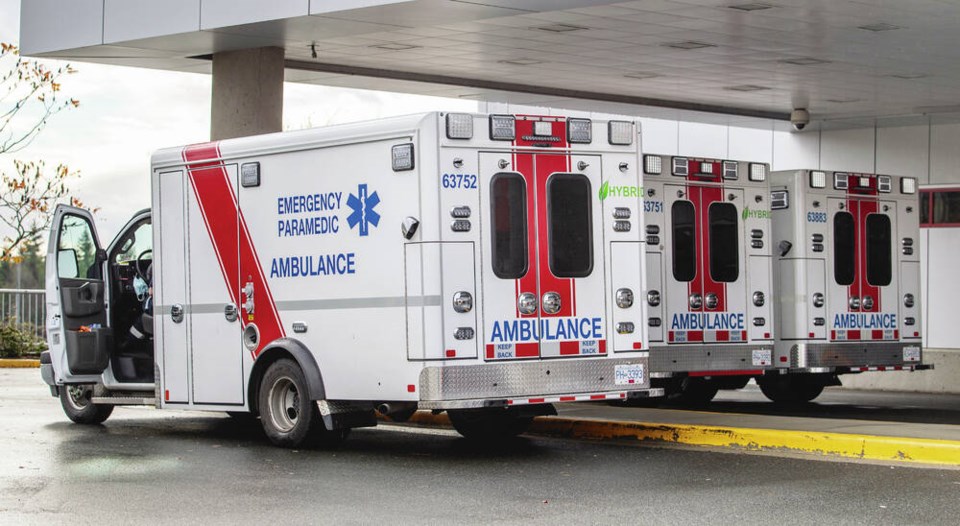Sexual harassment, racism, bullying and dysfunctional management at B.C. Emergency Health Services have contributed to workplace stress and crumbling morale, according to an internal report released Friday.
“The breadth of the sexual harassment activity reported … requires urgent attention and a sustained focus to reduce,” wrote the report’s author, Cathe Gaskell, a specialist in workplace harassment and conflict resolution in health care settings.
Several BCEHS staff told Gaskell that complaints about sexual harassment were “not acted upon or taken seriously” and that a “boys club“ existed in management that “protected predators.”
Others reported direct or indirect reprisals when reporting harassment and that the union had “supported alleged perpetrators” or protected them through “minimal” punishments.
In an email, Troy Clifford, president of Ambulance and Paramedics of B.C., called the findings on union representation “deeply concerning” and “not consistent with our practices.” He said the union had “not been made aware of them prior to the report being released.”
Clifford said the union had only received the report on Friday and that they were “working to review internally and with BCEHS to address the issues raised.”
In other instances, Gaskell wrote that staff “provided examples of casual racism made by colleagues about patients” or described being the target of racist comments themselves.
“Lack of sensitivity expressed by some colleagues around diversity of colleagues, and patients, is likely to be creating tensions in the workplace,” she wrote.
Leanne Heppell, Chief Ambulance Officer of the BCEHS, said that many of the report’s recommendations, including a confidential phone line for employees to report harassment, bullying and discrimination, had already been implemented and that more work was in progress.
She said BCEHS has already hired a director of diversity, equity and inclusion; improved training for leadership and human resources teams; and improved both the number and diversity of new hires.
“We’ve been working with our leadership team and our HR team to provide more training and expertise in how to proactively address some of these issues,” Heppell said.
“We’re taking action and we’re being very clear about the expectations,” she said. “All leaders will be expected to ensure a safe and respectful and inclusive workplace, full stop.”
The report was conducted in 2022 but released on Friday, two months after CTV filed a freedom of information request for a copy of the report.
Heppell commissioned the report following an early workplace survey in February and March of 2022 that found only 39 per cent of staff felt the BCEHS took “effective action to prevent disrespectful behaviour” and only half of employees felt the workplace was “psychologically safe.”
Heppell, who toured the province extensively to speak with staff and management when she was first hired in late 2021, said while the report provided much needed detail, she was not entirely surprised by the results.
“The detail was consistent with what we heard in the staff survey and consistent with what I heard meeting with staff,” she said.
Gaskell’s report also found that long-standing problems with pay, staffing and scheduling were dragging down morale and a lack of “soft skills” among leadership left staff feeling undervalued.
“Employees are burnt out with mental health stressors, being overworked due to understaffing, scheduling and payroll errors that have affected their belief and passion for their roles,” she wrote.
Staff also said that “autocratic” behaviour exhibited by some managers “contributed to a general sense of not being heard,” Gaskell wrote.
Despite the toxic workplace conditions cited in the report, Gaskell noted that staff reported feeling “passionate and committed within their roles” and committed to their communities.
“There was a high level of goodwill expressed around culture change.”



